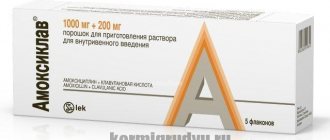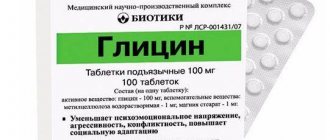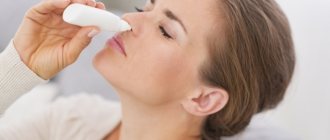admin Home page » Herpes during pregnancy Views: 994
( 1 ratings, average: 5.00 out of 5)
For pregnant and lactating women, the time of any illness is a dangerous situation. Very often ladies in this interesting position are bothered by herpes.
This virus is very common among all people around the world. In the body it can be in different states.
It is necessary to distinguish between people who are carriers of the virus and those who are directly sick with it. Let's figure it out further.
Herpes during breastfeeding
Types of herpes

The peculiarity of the virus is a long asymptomatic period. Signs of infection appear when the immune system is weakened, when a harmful agent integrates into the nucleus of a living cell and multiplies. This is why 70% of the healthy female population detects infection only after childbirth, when the body’s immune response is incomplete.
The disease is contagious and requires urgent medical treatment to eliminate the risk of infecting the baby. To determine treatment tactics, symptoms are diagnosed and an accurate diagnosis is established. After all, there are 8 types of herpes, each of which is dangerous in its own way.
Virus strains
- Type 1 - inflammation of the lips.
- Type 2 - appears on the genitals.
- Type 3 (Zoster) is the cause of herpes zoster and chickenpox.
- Type 4 (EBV) - the virus infects lymphocytes and spreads throughout the organs, threatening a complication - mononucleosis.
- Type 5 - cytomegalovirus (inflammation of the salivary glands), which in difficult cases provokes damage to internal organs and a disorder of the autonomic nervous system.
- Types 6, 7, 8 are little studied, as they were discovered less than half a century ago. Suspected to cause skin eczema, rashes and chronic fatigue syndrome.
Viruses 3 and 5 are considered especially dangerous. Shingles and chickenpox are acute: with an increase in temperature to 39.5 ° C, and profuse rashes. The duration of the expressed stage of the disease is 7-10 days.
If a nursing mother had chickenpox in childhood, the probability of relapse is no more than 0.2%, but Zoster reappears in adulthood as herpes zoster. For blistering rashes under the breasts, treatment must be started within the first 48 hours to stop skin damage.
The herpes virus “loves” mucous membranes, through which infection occurs. The harmful agent actively divides in the mucosal epithelium and penetrates the blood and lymph. Once a person is infected with herpes, the infection will remain in the body forever.
Types of herpes with hepatitis B
There are several types of herpes that are possible during breastfeeding:
- Type I is “simple”: swelling and itching occurs in the lip area, and bubbles with watery contents appear there (popularly known as “colds”);
- Type II “genital”: the appearance of a characteristic itchy rash on the genitals. The rash quickly spreads over the adjacent skin, as well as on the mucous membrane of the labia.
- Type III “shingles” (lichen, chickenpox): the appearance of characteristic rashes along the affected nerve. During the feeding period, the disease is accompanied by severe pain.
To treat type I herpes, it is enough to promptly apply the ointment for local treatment of the affected areas of the skin, but cases of type II and III require mandatory consultation with a dermatovenereologist or attending physician.
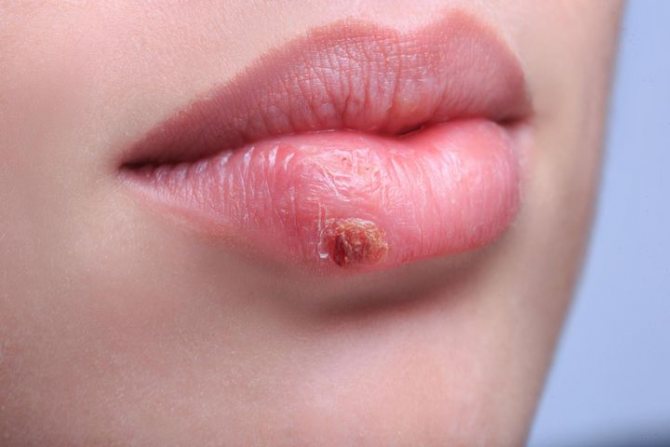
Self-medication is unacceptable. You need to see a doctor urgently in order to alleviate the course of the disease as much as possible. The longer the patient delays visiting the hospital, the more severe the symptoms will be.
Causes of the disease
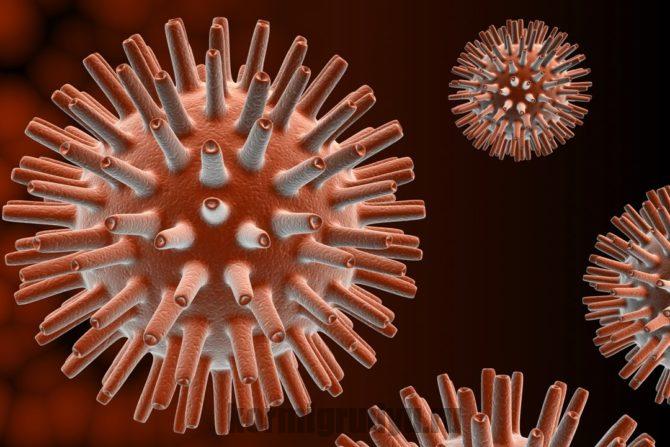
If a herpes agent enters a room, its activity continues for 24 hours. Moreover, the lower the air temperature, the longer the microorganism lives.
At 45-50 °C, herpes lives for 24 hours, at 30 °C - 48 hours, at sub-zero temperatures - up to 5 days. If you breathe in the air in an infected room, a person will become infected instantly; the virus will penetrate the blood within 2-4 hours.
Methods of infection
- Close contact with the patient - kisses, hugs.
- Common items.
- Hygiene products.
- Airborne.
- Sexual contact.
The virus instantly attaches to the mucous membrane, penetrates cells, destroying some and moving to others. With normal immunity, the activity of herpes is inhibited by protective forces, but in the postpartum period the body cannot cope with harmful agents in 50% of cases. The result is rashes on the lips, chest, and genitals.
It is normal if a woman detects herpes on her lips 1-2 times during a year and a half of breastfeeding. Manifestations of the virus more often are a sign of additional factors that suppress immune forces.
Factors provocateurs
- Hypovitaminosis.
- Hypothermia.
- Overheating in the sun.
- Infections that affect the immune system.
- Stress.
- Intoxication.
Herpes, which appears more often than 2 times a year for 2-3 years, means a persistent violation of the immune response. Characteristic of malignant neoplasms and HIV infection, progressing to the AIDS stage.
But in 70% of cases, the disease is suppressed within 7-10 days by standard antiviral therapy and does not entail dangerous complications. A nursing mother is recommended to have a nutritious diet and take multivitamin complexes.
How to treat herpes during breastfeeding (lactation)

During breastfeeding, different strains of herpes appear, but in 70% of cases simple types are activated (1, 2). The first signs of the disease appear 12 hours before the rash. More often, a woman feels overworked, sleepy, and weak.
The temperature rises to subfebrile values (37.0-37.3) and increases with the appearance of inflammation. Itching appears at the site of the rash. It is recommended to start treatment on the first day after the first signs are detected.
Herpes on the lips
It appears when sharing utensils and hygiene items with a person in the acute stage of the virus. The symptoms are vivid - severe itching, swelling on the lips. Later, watery blisters appear that cannot be combed or squeezed out. A mechanical violation of integrity threatens the spread of infection and infection of the baby.
Local treatment - Acyclovir ointment, Zovirax and immunomodulatory therapy. Elevit Pronatal, extracts of aloe, chamomile, and echinacea are prescribed.
On the mammary gland
Herpes on the nipples is dangerous due to the risk of infection of the baby. If the rash is localized at a short distance from the areola, an emergency stop to the spread is required. The first signs are swelling and tenderness of the breast; within 24 hours, bubbles with fluid appear inside.
Treatment is prescribed local and restorative - Acyclovir ointment, Vivorax, Herpferon, antiviral tablets based on acyclovir and a vitamin complex. Course of treatment for nursing mothers: orally for 3-5 days, ointment is allowed until the crust separates.
Genital (genital) herpes

Rashes on the genitals most often plague women after a traumatic birth or when infected from a partner. Due to weakened local immunity, the virus spreads and is activated on the mucous membranes of the genital organs.
Symptoms of type 2 virus infection appear immediately (in 90% of cases) - chills, temperature up to 38 °C, weakness, drowsiness, itchy rashes characteristic of herpes. Locations: labia, pubic area, perineum, intrafemoral area.
Treatment - oral Acyclovir or Valtrek, local treatment with a gel with a similar composition, natural immunomodulators (echinacea, aloe). Antiviral drugs destroy the DNA of herpes and prevent the spread of infection. The dosage form, dosage and course of treatment are determined by the doctor. If the recommendations are followed, the drugs eliminate the risk of infection for the newborn.
Symptoms and signs of infection
Herpes is one of the most widespread viral infections in the world. About 90% of the population suffers from this disease, but in only 5% the disease progresses. When breastfeeding, a herpetic infection manifests itself against a background of general malaise in the body and can provoke the development of more severe forms of the disease. Timely treatment can protect against complications of the disease. Herpes manifests itself as characteristic rashes, watery blisters on the skin, mucous membranes or genitals.
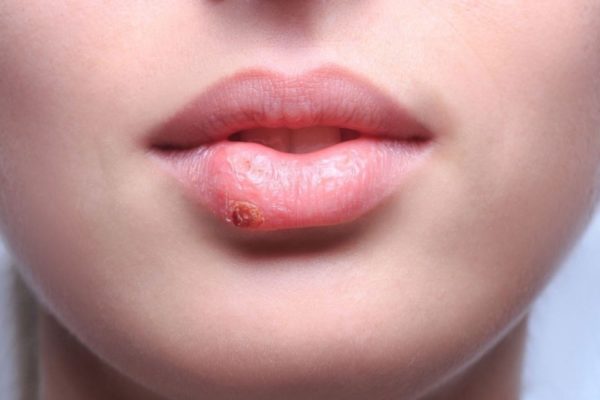
Most often, infection is localized in the corners of the mouth, less often in the nose, eyelids, cheeks or gums. Types of herpes:
- herpes simplex type I - signs appear on the face or mucous membranes;
- herpes simplex type II – provokes inflammation of the genital organs;
- herpes zoster – causes chickenpox or shingles.
Simple types of the virus begin with itching, burning of the skin, chills or malaise. Blisters containing clear liquid appear on the inflamed area, which burst after a while and a dry crust forms in their place. With genital herpes, a nursing mother experiences itching and burning in the groin area, and yellowish discharge appears from the vagina. Infection occurs with exacerbation of inflammation of other infections, and therefore requires consultation with a specialist. Herpes zoster is characterized by headaches and the appearance of rashes at the bases of nerve endings in the form of blisters, first with clear, and then with purulent and bloody fluid. The rashes occupy a large area of skin and are accompanied by severe pain. As a result of the disease, enlarged lymph nodes, increased body temperature, chills and general malaise occur.
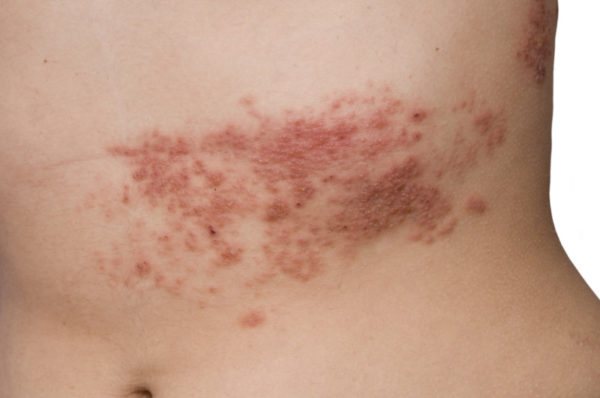
Is it possible to breastfeed if you have herpes?

Breastfeeding is considered to prevent infection of the child.
If a woman is infected with an infection, during breastfeeding, the production of specific antibodies is activated that inhibit the activity of herpes. It takes 3-4 days to block an exacerbation. The antibodies produced penetrate into breast milk and are passed on to the baby, thereby preventing the child from becoming infected - the antibodies form immunity against infection.
If the child does not come into contact with the inflamed tissue, the risk of infection is no more than 0.1%. But it is important to follow strict rules that will protect the baby from infection.
Feeding rules
- Avoid contact of the baby with infected tissue.
- Use hand sanitizer before each feeding.
- Do not interrupt the course of treatment before the time prescribed by the doctor.
It is recommended to stop breastfeeding only in cases of herpes rash in the nipple area. Moreover, if one gland is affected, only the healthy one is used for feeding. If any other part of the body is affected, hepatitis continues.
Disease prevention
When a woman becomes ill, the question arises whether she can breastfeed. Most doctors say there is no need to stop breastfeeding. The herpes virus is not able to pass into breast milk. A child can only be infected through skin-to-skin contact. If infection does occur, it is advisable to continue feeding to speed up the baby's recovery. Breast milk produces antibodies to fight the virus, which leads to increased protection for the child’s body. Necessary precautions for a nursing woman:
- Wash your hands thoroughly before each feeding.
- Refrain from kissing and hugging until you recover.
- Constantly change bed and underwear.
- Use disinfectants.
- If the virus is genital, avoid sexual intercourse.
- Do not touch affected areas.
- If one breast is affected, feed the baby with the other.
- Clean your nail plates daily.
- Wear loose clothing.
- When applying makeup, do not touch your eyes with your hands.
- Do not pick dried blisters to avoid spreading infection.
- If both mammary glands are inflamed, it is recommended to stop breastfeeding for the duration of treatment.
By following the above rules, you will protect your loved ones from infection.
Prevention

Herpes is difficult to avoid. The infection, sooner or later, penetrates into every body before the age of 40. Immunity helps to avoid exacerbation of the disease. In a healthy state, the body’s protective functions easily suppress specific harmful agents, preventing the spread of infection. It is important to adhere to preventive measures.
Recommendations
- Immunity support - vitamins, walks in the fresh air, giving up bad habits.
- Sleep 8 hours a day.
- Healthy menu - proteins, vitamins and minerals, fatty amino acids (meat, fish, cereals, vegetables, fruits).
- Avoiding stress and nervous tension.
- Sports activities - running, swimming, moderate strength training.
- During the height of the infection, avoid crowded places and wear a mask.
- Use only your own hygiene items.
- Wash your hands with soap 5 times a day.
- Disinfect the child’s objects - toys, dishes, crib railings.
Normally, in an infected person, rashes appear once every 2-5 years or do not bother them at all. Favorable periods for exacerbation are seasons of respiratory diseases, after illness.
If herpes worsens more than once every 12 months, an examination is required. The sign indicates persistent immunity disorders caused by chronic diseases.
For the safety of the baby, breastfeeding mothers are usually treated with folk remedies. But with herpes, such methods are ineffective; the infection requires qualified assistance from a therapist. A course of safe medications suppresses exacerbations in 3-5 days without the need to stop breastfeeding.
Dessert for today - a video about how to get rid of herpes in one day.
Herpes during breastfeeding can become a serious problem. But this does not mean that the mother needs to stop breastfeeding and switch the baby to formula. In most cases, breastfeeding can be continued along with treatment. Let's take a closer look at what causes an exacerbation of herpes, how to treat it, and in what situations it is dangerous for infants. We will also answer the question of whether it is possible to breastfeed a baby during illness.

Herpes during breastfeeding
Prevention of herpes
First of all, the mother needs to think about raising the body’s defenses during lactation. To do this, she should eat right.
Usually, after giving birth, a woman strives to lose the pounds she has gained. Basically, the mother limits the amount she eats.
The nutrients from the food consumed should be enough for both the health of the mother and the nutrition of the child. But this doesn't happen.
As a result, the body will begin to automatically take the necessary substances from the mother’s cells. Therefore, losing weight and breastfeeding are incompatible things.
The food consumed should contain enough proteins, fats, vitamins and other microelements. You can actively lose weight only after stopping feeding.
Sometimes a woman does not eat everything during lactation, because the baby suddenly has an allergy.
She usually does not consume enough protein foods, to which the child actively reacts. Accordingly, the baby lacks this element.
Solution : replace allergenic products with others of similar composition.
In addition, the immune system needs to be strengthened with walks in the fresh air, healthy, full sleep and sufficiently active activity.
Also, to prevent the infection from spreading to the child, you need to take precautions:
- Regular change of underwear. The same applies to the bed of nursing mothers and children.
- Use of individual utensils.
- Treatment of permanent items with disinfectants.
- Wash hands with soap before contact with the little one.
- Complete rest.
- Eat more fish, cottage cheese, meat and dairy products.
- Constantly take care of strengthening your and your baby’s immune system.
- Take vitamins regularly.
In addition, for emergency assistance, an antiviral drug should always be in the first aid kit.
If herpes appears during lactation, you should immediately use Acyclovir or another similar remedy.
Herpes during breastfeeding is a dangerous disease. Therefore, to prevent it from appearing at a crucial stage of life, it is necessary to reduce the risk of herpes through prevention.
This is very important, both for the child and for the new mother.
Causes of herpes
Herpes is a disease that is caused by several types of virus. The following variants of the disease are distinguished:
- Herpes simplex type 1 (HSV1)
- Herpes simplex type 2 (HSV2)
- Shingles (Herpes Zoster).
The first type causes rashes on the lip, wings of the nose and other areas of the face. The second is localized mainly on the genitals. Herpes zoster is caused by the same virus that causes chickenpox in children. At the first contact with it, a typical picture of chickenpox appears. After an illness, the virus remains in the human body for life. In case of immunity disorders, it can manifest itself in the form of rashes along the nerve endings, accompanied by severe pain.
Rashes with different types of herpes are similar to each other. These are small bubbles with transparent contents, grouped together. Often, herpes during lactation is accompanied by general malaise and fever. Genital and shingles types can cause severe pain and burning. The manifestation of the disease is associated with hormonal changes and weakened immunity in a nursing mother. The first type on the lip often appears during influenza and ARVI. The second type is when the husband’s disease worsens.
Symptoms
Herpes in a nursing mother can appear on any part of the body. Depending on the type of pathology, the following symptoms are distinguished:
- The first type of herpes. Most often, the rash appears on the lips, but can be localized on the cheeks or nose. The first symptoms of the disease are characterized by the appearance of itching and burning in the area where pimples will appear in a few hours. Gradually they will increase in size and merge with each other. The blisters are filled with liquid that contains a “concentrate” of the virus. When the blisters burst, weeping sores form in their place. As they dry, a crust forms and comes off on its own.
- Genital herpes, or type 2. In women, the skin in the vulva, perineum, anus and vagina becomes red. The hyperemic mucous membrane swells. All this is accompanied by severe itching. Additionally, herpes in a nursing mother can cause frequent urination, heaviness in the abdomen (lower), headache, increased irritability, nausea or fever. The affected area becomes covered with vesicles that are filled with a cloudy liquid. When pimples burst, ulcers appear in their place. They become covered with a yellow purulent coating (read more here).
- Herpes zoster (type 3). Initially, the woman experiences general signs of malaise. At the end of the promoral period, a sensation of itching and burning appears in the direction of the peripheral nerves. A rash will soon form on this area of the body. Pimples do not merge with each other. From the inside they are filled with serous fluid. The rashes are localized along the dorsal nerve ganglia. Bilateral involvement is rare.
How dangerous is herpes for a child?
The herpes virus, both simple and shingles, enters the human body in childhood or adolescence. It remains for life, “living” in the cells of the peripheral nerves. With normal immunity, there are no clinical manifestations of the disease. If for one reason or another the immune system weakens, an exacerbation occurs. For many women, they occur at fairly short intervals, which creates problems when breastfeeding.
Is herpes dangerous for a baby during lactation? Infection with the virus occurs through direct contact with affected areas of the skin. If the child does not come into contact with them, infection will not occur. In addition, during an exacerbation period, mother’s breast milk contains many protective antibodies. They enter the baby’s body and create additional protection. This primarily concerns herpes zoster. After all, the same virus causes chickenpox in children.
The only case where herpes is truly dangerous for infants is when it is localized on the nipples. Then the probability of infection is really high and the question arises about the compatibility of herpes and breastfeeding. Doctors recommend stopping it temporarily until treatment ends and the rash goes away.
Herpes infection in children is much more severe than in adults. When infected with type 1 herpes, painful aphthae appear in the mouth, the temperature rises, and the child refuses to eat. Chicken pox in infants is accompanied by generalized rashes, severe body condition, and fever. Fortunately, maternal antibodies protect infants and infection rarely occurs if all prevention rules are followed.
What to do if mom has herpes
Is it possible to breastfeed if you have herpes? This is a question many mothers ask. You can continue breastfeeding if you have herpes. This opinion is shared by most pediatricians, including Dr. Komarovsky. The only exception, as mentioned above, is herpetic rashes on the nipples. Here are the basic rules for breastfeeding with herpes that mothers should follow:
- Herpes and breastfeeding are quite compatible. The mother's antibodies protect the baby, so feeding should continue as usual.
- Stop breastfeeding only if there is a rash on the nipples. If one breast is affected, give the child a second one. Be sure to express milk from the affected breast so that milk stagnation does not occur and lactation does not stop.
- If herpes appears on the lip, you should not kiss the baby. Do not allow your child to come into contact with other affected areas of skin.
- Before each feeding and approaching the baby, you should thoroughly wash your hands with soap. No other antiseptic means are needed; ordinary soap is sufficient.
If mothers adhere to all hygiene rules, infection does not occur. After all, herpes is transmitted only through direct contact. If it is not there, you can safely continue to breastfeed your baby. Now let's talk about how to treat herpes while breastfeeding. The rapid disappearance of the rash and other symptoms in the mother helps to continue proper feeding and relieves discomfort when caring for the child, including psychological discomfort.
Treatment of herpes during breastfeeding
How to treat herpes while breastfeeding? It depends on the type of virus and the degree of exacerbation. There are a number of drugs for local and general use that can quickly and effectively deal with the problem. Antiviral drugs themselves include:
They are produced in ointments, tablets, and injections. They act directly on the virus, destroying it. But these drugs are effective only during the period of exacerbation, when viruses are actively multiplying and are en masse outside the cells. During the period of remission, the DNA (genetic material) of the virus is located inside the cell nucleus, embedded in the human genome; no known drug can “get it” there. Treatment with antiviral drugs is not carried out during this period.
All antiviral drugs are considered safe during breastfeeding. They penetrate into mother's milk in negligible quantities and do not cause any negative reactions in the child. For rashes on the lip, wings of the nose and the absence of general symptoms, it is recommended to use ointment or creams. The most popular are Zovirax (acyclovir), Fenistil (penciclovir). If the ointment does not help, you can take the drugs in tablets. Herpes zoster often has to be treated with injections and at the same time prescribed painkillers, since it is quite severe.
Together with antiviral drugs, treatment is carried out with interferon drugs or inducers of its synthesis (Viferon, Laferobion, Cycloferon). They help increase the body's natural resistance and achieve remission faster. It is not recommended to treat herpes while breastfeeding using traditional methods. They bring little benefit, and for the mother it is important to recover faster.
Traditional medicine to help traditional
Many young mothers are interested in how to treat herpes using folk recipes. It is indeed permissible to use drugs from the category of alternative medicine for this disease, but a nursing woman should remember several important nuances. Firstly, folk remedies do not have an antiviral effect and cannot effectively cope with the causative agent of the disease, so they can only be used as an additional therapy. Secondly, not all informal medicine recipes are safe for a nursing mother, and they can only be used in consultation with the attending physician.
During lactation, it is allowed to use folk remedies for external action. To treat the affected areas, tea tree essential oil, fresh aloe juice, and sea buckthorn oil are useful. All these liquids help reduce itching, pain and inflammation and speed up the process of skin regeneration after the opening of herpes blisters.
Tweet
Pin It
Tags:Pregnancy
- How to treat herpes when the first symptoms appear
- Why does recurrent herpes occur and how does it manifest?
- Symptoms and treatment of herpes in the blood
- Laboratory test for herpes
Prevention of herpes during breastfeeding
Mother's herpes and breastfeeding are quite compatible. But no one wants to get sick, especially at such an important time as breastfeeding. Therefore, doctors give some advice to women who want to avoid this problem during breastfeeding:
- Spend more time outdoors.
- Have a full rest.
- Eat right, eat foods rich in vitamins and proteins, they improve immunity, and milk flows well.
- Correctly and promptly treat colds and GRVI.
As soon as herpes appears on the lip, or genital, you need to go to the doctor. He will prescribe treatment and give recommendations on how to properly feed the newborn and care for him during illness. Only qualified help can prevent a baby from becoming infected with herpes and help his mother recover faster.
What is herpes, and what are its types? Is there a danger of transmitting the virus from mother to child? Is it possible to breastfeed a child during illness, and how to treat it.
Causes of infection during lactation
Becoming a mother, a woman experiences high emotional and physical stress. The constant need to be close to the child leads to sleep disturbances, loss of appetite, excessive worries and general fatigue. When breastfeeding, the main resources of the nursing mother are spent on milk production. The body weakens, and on this basis a relapse or infection with the herpes virus is possible. A nursing mother should pay attention to her health and lifestyle. It is necessary to eliminate strong emotional shocks and conduct more calm activities. The main rules for preventing herpes infection:
- Healthy sleep.
- Balanced diet.
- Compliance with personal hygiene rules.
- Walks in the open air.
- Complete rest.

Why is herpes dangerous when breastfeeding?
If a rash appears on the nipples, then feeding should be stopped so as not to infect the child. In children, this type of infection is much more complicated. The virus affects the nervous system, internal organs, vision and ENT organs.
Type 1 – labial
This is a simple herpes virus that can lead to dangerous consequences, and even the death of a child. This species usually affects the upper part of the body.
Once in a child's body, the virus can cause stomatitis, chickenpox and common herpes. Infection of the eyes, genitals and internal organs poses a great danger.
2 types – HSV-2, Herpes simplex virus 2, genital
This type of virus is characterized by skin rashes on the genitals. Often develops together with herpes type 1. The danger of the virus is that it provokes the development of sore throat, stomatitis and other unpleasant consequences.
How dangerous is herpes and what complications does it cause?
After penetration or activation of its virus, the mother’s body begins to intensively produce antibodies that kill pathological agents. Frequent feeding of the baby increases the release of antibodies that fight viruses. This is why doctors recommend not interrupting breastfeeding. Mother's milk transfers passive immunity antibodies to the baby.
For a young mother
Often herpes in a nursing mother goes away easily or takes on a moderate form. In such situations, it does not cause complications and is treated with local remedies. If the viral infection develops into a protracted, severe form, the mother may develop headaches and her overall health may deteriorate. The virus is capable of infecting tissues of the nervous system, penetrating internal organs and ENT organs, causing an exacerbation of existing somatic diseases. Visual perception deteriorates from exposure to viruses. Against this background, dizziness occurs.
How to treat genital herpes that remains after childbirth
If genital herpes appears after childbirth, then it is treated with local drugs: Zovirax, Acyclovir, etc., which lubricate the vaginal wall. These medications should be used 3 times a day.
In addition, you need to monitor your diet, take vitamins and maintain your immune system. If the disease is not treated, it may be accompanied by another genital infection.
During this time, you should refrain from sexual intercourse with your partner, as the virus can easily be transmitted to him.
Treatment of cold herpes in mother and lactation
First, you will need antiviral drugs that will help you quickly defeat the disease and reduce the likelihood of infecting your child with it. During breastfeeding, you can only use topical medications, for example, Acyclovir or Zovirax. It should be used at the first sign of the virus. The drug is applied in a thin layer to the affected area three times a day. Treatment is carried out until the rash dries.
If the disease was not started on time, then you cannot do without pills. Acyclovir tablets will also help here, however, during the period of taking them you should stop breastfeeding, as they are passed on through mother's milk.
Additionally, medications such as Viferon and Cycloferon may be prescribed, which help the body fight the infection more quickly. Drying drugs, Fukortsin, and propolis tincture are also used.
We should not forget about vitamins, healthy eating and organizing a daily routine. Treatment of herpes lasts about a week, during which time the rash dries out and crusts appear in its place. After some time, they disappear and the skin becomes smooth again.
Treatment methods
Treatment of herpetic infection has its own characteristics. The virus lives and multiplies inside the cells of the human body, so taking antibiotics will not bring the desired result. During breastfeeding, without a prescription and side effects, you can use topical agents: gels, ointments, creams. They are not absorbed into the blood, so there is no need to stop breastfeeding. At the first sign of disease, burning or itching, it is enough to apply the cream to the affected area, and the disease will not manifest itself. If a rash occurs, systematic treatment is required. Acyclovir-based drugs are used to combat herpes. The ointment is applied directly to the blister until a dry crust forms.

Treatment of herpes zoster and genital herpes requires a more serious approach. You definitely need to get examined by a doctor. These types of herpetic infections are treated comprehensively. Both topical preparations and antiviral tablets are used. During treatment with systemic medications and taking acyclovir tablets, a nursing woman is advised to stop breastfeeding until recovery, for about 10 days. During this time, the rash should completely dry out and fall off. If recovery is delayed and new foci of inflammation form, you should definitely seek help from a doctor. To increase the effectiveness of medication use, it is recommended to adhere to certain nutritional rules. The diet of a nursing woman should include the following products:
- chicken meat,
- sea fish,
- seafood,
- cereals, other than grains,
- eggs,
- seaweed,
- soybean,
- dairy and fermented milk products,
- vegetables, herbs, fruits.

To avoid re-infection during breastfeeding, you should reduce the consumption of foods that contain the amino acid arginine. These include:
- all types of nuts,
- whole grain flour,
- chocolate and other types of cocoa products,
- peanut,
- gelatin,
- sunflower seeds,
- lentils,
- beans,
- peas,
- beef meat,
- sugar.
Herpetic infection is a very unpleasant illness for a nursing woman. It is important to remember that this disease is more dangerous for an infant than for adults and can be transmitted through contact. By taking precautions, you can protect your infant from illness.
Prevention
To prevent relapse of the disease, you need to strengthen your immune system. To do this, you need to eat right, consume as many vitamins, proteins and fats as possible. You should walk more in the fresh air, this is beneficial for both mother and baby. To avoid infecting your child, you need to follow simple measures:
- Regularly change the mother's and child's underwear, as well as bed linen.
- Use separate dishes.
- Treat your hands with a disinfectant solution before picking up your child.
- Get proper rest, sleep at least 8 hours a day.
- Eat fish, dairy products, meat.
- Strengthen immunity.
- Take vitamins.
Danger to child
Once the herpes virus enters a child’s body, it remains there forever, worsening when immunity decreases. In the first months of life, babies are less susceptible to this virus, since the mother’s immunity protects them.
The herpes virus in an infant can cause dangerous consequences such as damage to the nervous system and other internal organs. The disease can also affect the organs of vision, causing keratitis, phlebothrombosis, etc. If the virus has spread to the ENT organs, the child may develop deafness, sore throat, or damage to the inner ear.
The cardiovascular system, which can also be affected as a result of the development of the herpes virus, does not stand aside. This leads to the formation of myocarditis, atherosclerosis, etc. If it spreads to the central nervous system, encephalopathy, meningitis, etc. are possible. Herpes can lead to the development of schizophrenia, depression in the future, as well as problems with the genital organs, prostatitis, endometritis, etc.
Herpes is a dangerous and rapidly spreading disease that can affect both children and adults. To prevent this from happening, you need to strengthen your immune system, treat all diseases in a timely manner, and when the first signs of the virus appear, consult a doctor.






